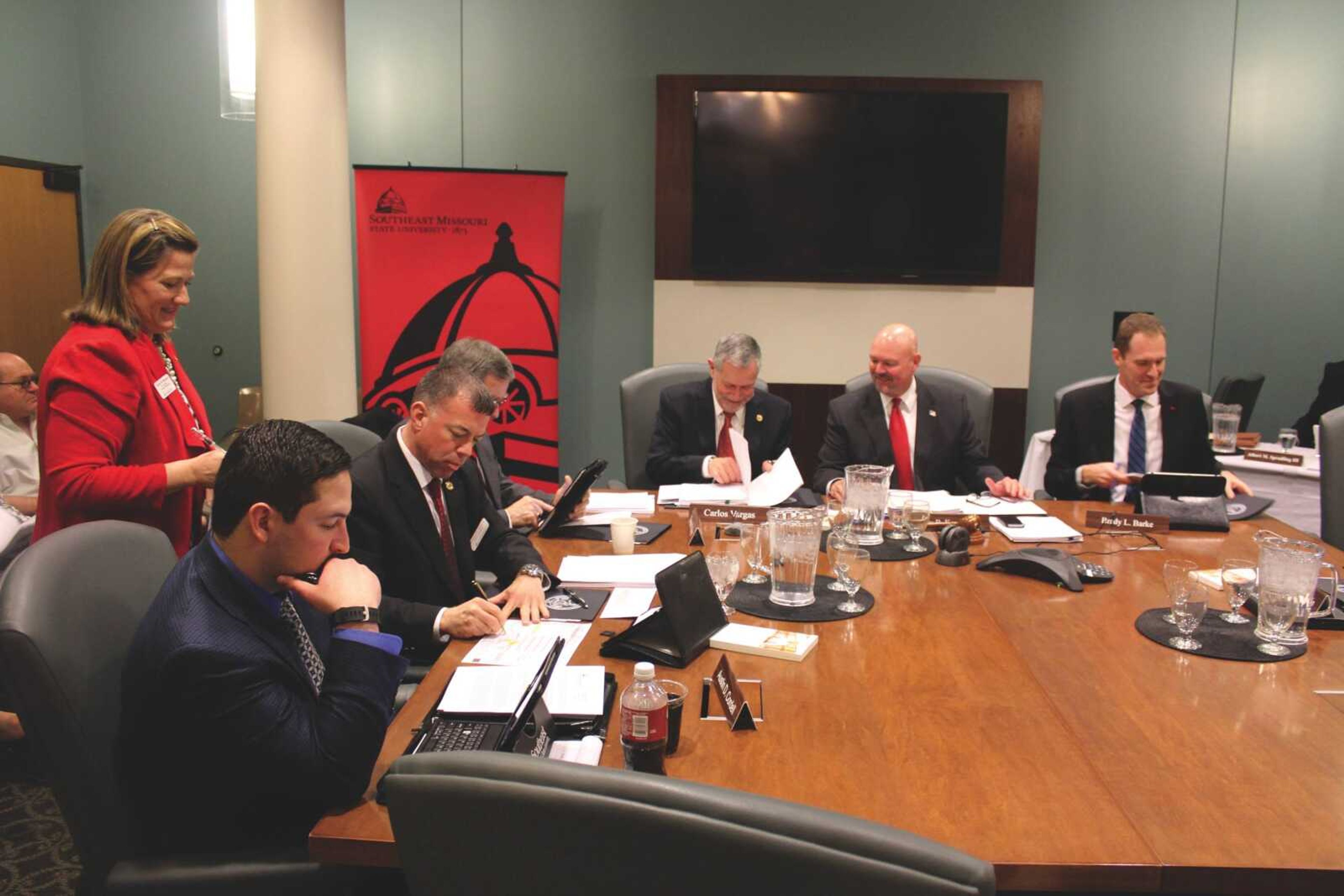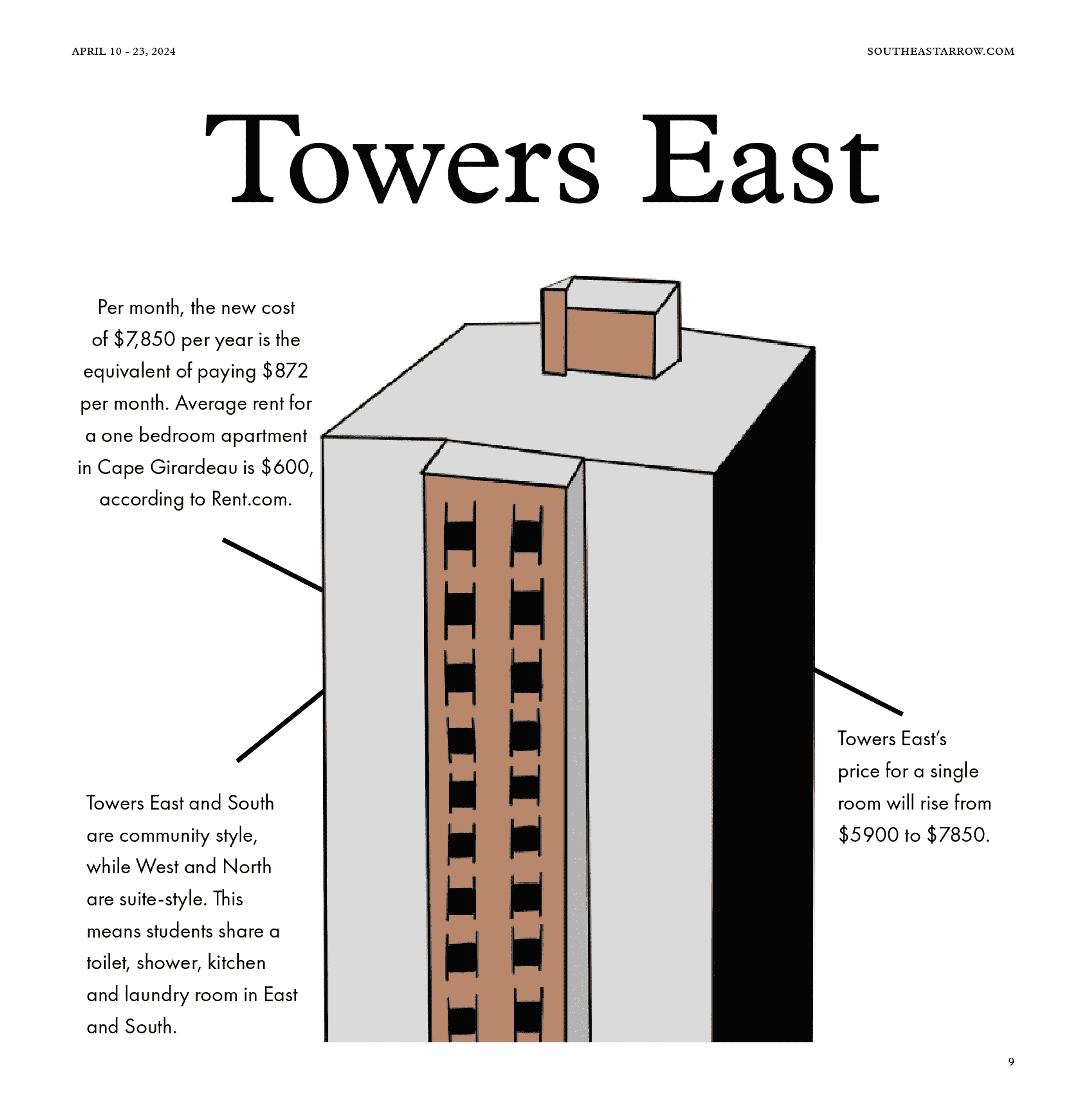__Clarification: The Department of Criminal Justice is reworking its degrees by removing options, but will still retain the degrees and all its courses.__
The Board of Regents approved cost increases for room and board at Southeast Missouri State University, while also eliminating break housing costs for on-campus students, during its Feb. 26 meeting.
Each residence hall will have a $30 room rate increase to cover the change, which will allow students who live on campus to stay in their rooms during fall, winter and spring breaks at no additional charge. Previously, students paid $25 per night during break periods, with a max at $250.
There also will be additional increases on community-style housing, including Dearmont, Towers South and Towers East, according to Dr. Debbie Below, dean of students and vice president for enrollment management and student success.
Below explained to the board members that over the past few years there has been a growing difference between the cost of the community-style housing and the higher priced suite-style housing. Below said that, in the past, increases in community-style housing were kept at a minimum, but now the gap slowly is being reduced.
"We're seeing that that rate differentiation is one of concern for students, it's something we've heard quite a bit about this year -- 'I'm looking for that less expensive hall,' and we just don't have as many community-style rooms as we have had in the past," Below said.
Below mentioned the decrease is in part due to Cheney Hall being closed all of next academic year, as well as the transition of Dearmont Hall to all single rooms a few years ago. Below said deleting break housing fees has been discussed in the past, and that similar institutions also have been discussing the issue.
"There are a lot of students that need to stay on campus today, and those numbers have changed really significantly over time," Below said. "It looks like this year we'll have probably more than 600 students who have stayed here on break, and some of those stayed for all three breaks. When I look back at the data just from about five years ago, that number was under 300, and it's gone up consistently each year."
Below said the rise in break residence is not only due to a larger international population, but also from students working during break and more out-of-state students. She also said the move would help them compete against off-campus housing.
The cost for meal plans also will rise next fall, increasing by 3.53 percent. The increase is due to contractual terms agreed upon with Chartwells when the university accepted to renew its dining contract last year. In return for the increase, Chartwells committed to $6,575,000 in improvements on campus. Below explained that the university has started to see these improvements already through Panda Express and the Subway expansion last year.
At the meeting, the Board of Regents also approved academic changes to create a Bachelor of Science in Unmanned Aircraft Systems (drones) and to delete the Bachelor of Science in Criminal Justice and Master of Science in Criminal Justice options.
President Carlos Vargas presented the unmanned aircraft systems program in the Department of Polytechnic Studies, which will focus on drone design, programming and safety. Six new courses were approved to supplement the program.
"As you know, we've been constantly trying to search out ways to differentiate ourselves from other universities, focus on areas that we are either good at or can separate and also collaborate that entrepreneurial spirit here with the private sector," Board of Regents President, Jay Knudtson, said. "That's how we win this game, and I can think of no better example than what Dr. Vargas is proposing here."
The criminal justice programs were said to be changed in the motion document due to the need for criminal justice students to have more broad education in the field compared to the current program.
A five-year academic calendar, which has gone through the faculty senate, was adopted during the meeting. The new calendar has continued this year's trial run of expanding Thanksgiving break and deleting the October fall break through 2020.
The board also approved an updated schedule of campus building and maintenance projects for the upcoming academic year, as well as the bonds for the Greek Housing project.





